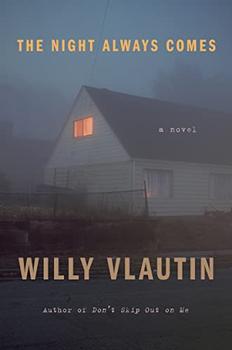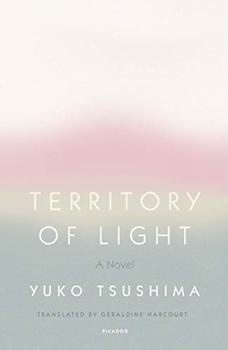Summary | Excerpt | Reviews | Beyond the book | Read-Alikes | Genres & Themes | Author Bio

Life is hard. We all know it. Sometimes it's enough just to get through the day and hope for a better tomorrow. It's got to get better! Won't it? Shouldn't it? Maybe there's a little ray of hope in a hard job getting easier for a while, or a long-treasured hobby that sparks a connection with someone who holds the same hobby dear. Something, right? Just something.
But what if tomorrow is even darker than today? What if something happens that makes a bad situation worse?
That's what the recently paroled Henry faces in debut novelist Jakob Guanzon's Abundance, stunning in its depth and shocking for its bleak events, which unfold over just one night. Life is hard enough for him. He and his elementary school-age son Junior have been living in his Ford F-250 truck for the past six months when the story opens. Buying a gallon of gas to drive to the nicer McDonald's in this equally bleak town for Junior's birthday is a luxury he can't afford, but he'll do it anyway because he has a job interview the next morning, and the promise of a motel room after McDonald's in which to finally rest. Hope. Possibility. This job could end up being better than the work he's occasionally able to pick up at construction sites, hauling this and putting down that.
It doesn't seem like Guanzon tells the story of Henry and Junior in this way to make us feel better about our own circumstances in life, hard as they may sometimes be. As the story progresses, he illustrates the harsh realities of poverty and the impossible choices it presents. Like you and me, Henry is trying to live, and to harness some dignity, even in the midst of the horrific physical and emotional violence that the reader will find here. The personal violence of finances also weighs heavily, cleverly established by the fluctuating dollar amounts of the chapter titles. These figures show how much money Henry has had at different times — once a lot, then very little — as the chapters alternate between present and past.
Henry's backstory includes an economics professor mother who dies of cancer when he is 12, hardening further his already-hard father, an immigrant to the United States from the Philippines who hoped to complete his doctorate but instead decided to teach high school to care for his family. After a disastrous confrontation with a student, Henry's father goes to work for a contractor. Feeling stupid because he doesn't know how to spell "economist," Henry loses interest in schoolwork and begins learning his father's trade. Then comes an inpatient stint at a hospital following a suicide attempt at 16. Here he meets Michelle, who becomes his tragic companion and Junior's mother. Later, Henry deals drugs and spends five years in prison. Some hard lives get even harder.
Guanzon understands that the reader is not going to stay with this novel for long if they're constantly beaten over the head with hopelessness and darkness. He tempers the continual bleakness with Henry's poetic insight, observations that make you wonder why you hadn't thought of it that way before. There are many to choose from — his description of the plastic splashes of the ball pit at McDonald's, or a parking lot that is a "dump truck's load of loose gravel raked out over dirt, making the tires crunch like a mouthful of cereal." For all these vividly alive descriptions and so many others, one can imagine hundreds more in notebooks or computer files that didn't make the cut, but may well find their way into future novels.
Additionally, Guanzon powerfully expresses an unfortunate truth: Everyone should have a chance to succeed in life, but not everyone is going to get that chance. We're defined by our circumstances. Some of these are random chance. Some, like Henry's, can be traced back to our families or specific challenges we've been through. Henry struggles to understand his father after his mother dies, particularly why he's so hard on him. He also has Junior to take care of, an endeavor that's exacerbated by their living situation and the addiction that consumes Michelle and makes Henry pretty much a single parent. He wants to be different from his own father, but he's still carrying baggage that darkens his relationship with Junior.
Then there is heart-wrenching desperation in the final pages, made even more potent by a melancholy note of hope. All the reader can do is sit with the book open in front of them, stunned, not only at what has been and what might or might not be at the end of Abundance, but at this new, deeply thoughtful, heartfelt force in fiction. Whatever Guanzon writes next will undoubtedly build upon the power he has established here.
![]() This review
first ran in the March 17, 2021
issue of BookBrowse Recommends.
This review
first ran in the March 17, 2021
issue of BookBrowse Recommends.

If you liked Abundance, try these:

by Willy Vlautin
Published 2022
Award-winning author Willy Vlautin explores the impact of trickle-down greed and opportunism of gentrification on ordinary lives in this scorching novel that captures the plight of a young woman pushed to the edge as she fights to secure a stable future for herself and her family.

by Yuko Tsushima
Published 2020
From one of the most significant contemporary Japanese writers, a haunting, dazzling novel of loss and rebirth
Your guide toexceptional books
BookBrowse seeks out and recommends the best in contemporary fiction and nonfiction—books that not only engage and entertain but also deepen our understanding of ourselves and the world around us.